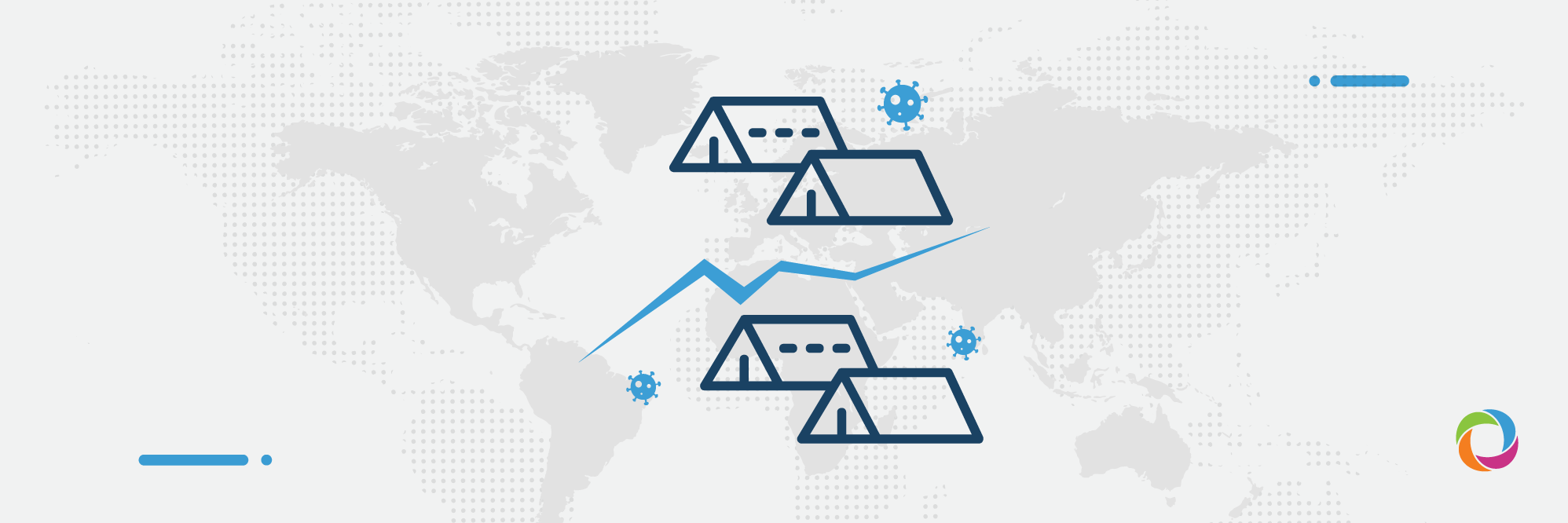According to the UN Refugee Agency (UNHCR), 2020 will be the year with the lowest number of resettled people in history, mainly due to the COVID-19 outbreak that has halted the process.
UNCHR November data shows that between January and September 2020, only 15,425 people were resettled whilst during the same period last year the total was 50,086. The total quota planned for 2020 is less than 50,000; however, the UN Agency estimates that it is unlikely even this number will be achieved.
The UNHCR’s Assistant High Commissioner for Protection, Gillian Triggs, said this mostly stems from “COVID-19 delaying departures and pausing some states’ resettlement programs.”
Triggs added that we are currently seeing the lowest numbers for 20 years. Moreover, the lack of resettlements means that the lives of many people are at stake with no possibility of protecting them. UHNCR has called upon the receiving countries to accelerate the process to resettle as many refugees as possible in 2020 as well as maintaining the planned quotas for 2021. While some countries have been unable to deal with resettlement effectively due to the COVID-19 outbreak, others have managed to conduct resettlements smoothly and according to UNHCR protocols which is why the UN agency is urging other countries to follow their example.
“Expanding safe and legal pathways to protection, including through resettlement, saves refugees’ lives and it can also mitigate their resort to dangerous journeys by land or sea,” said Triggs.
The COVID-19 outbreak halted the process of the resettlement of refugees from Libya who were unable to leave their country after the 12th of March until the restrictions were lifted on 15th of October. Meanwhile, 280 people who were evacuated to emergency transit facilities in Niger and Rwanda are still waiting to be resettled to host countries with additional 354 refugees still awaiting a decision.
Despite the pandemic, the resettlement process was successful for some refugees coming from Lebanon after the terrible explosion that had previously hit Beirut. When lockdown was lifted, 1,027 Lebanese were resettled in nine host countries between August and September 2020. Although some countries halted the process of resettlement when the lockdowns were introduced, UNHCR continued to work to ease legalities and successfully submitted over 31,000 resettlement cases.
The majority of resettled refugees in 2020 came from Syria (41% of all resettled refugees) followed by Congo (16%) with the remainder resettled from 47 other countries such as Iraq, Myanmar, and Afghanistan. Most were victims of violence and torture who were in need of legal and physical protection or were women and children whose lives were at stake.
The COVID-19 pandemic has been a double-edged sword for many refugees. Millions have been exposed to violence, family separation, hunger, and poverty and the outbreak has also hindered their chances of resettlement, making them more vulnerable to the possible risk of infection due to dire living conditions. Refugees frequently live-in overpopulated camps where social distancing is not possible and where there is no access to sanitation which means they are unable to maintain proper hygiene, not to mention the lack of access to health care systems.

